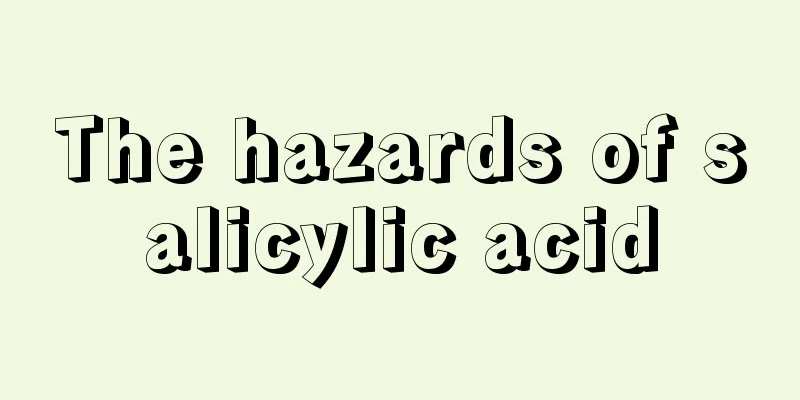What are the poisonous plants

|
Plants are an important part of nature and play important functions. Moreover, some plants are very helpful to our lives. Keeping some flowers and plants at home is not only beautiful, but also can improve the indoor environment. It should be noted that there are many types of plants, many of which are poisonous and will naturally cause harm if grown at home. So, what are some poisonous plants? Let’s take a look below. Wheatgrass The shape of the wisteria is quite romantic: blue, pink or white flowers the size of small sweet beans spread densely and droop. It mainly grows in the south and southwest regions and is also known as the cloud bean tree. Its entire body is poisonous. Although some reports say the flowers are not poisonous, it is still better to be cautious. Because a large number of reports have shown that if accidentally ingested, it can cause nausea, vomiting, abdominal cramps, and diarrhea, and appropriate treatment should be adopted, such as intravenous drip and anti-nausea drugs. Foxglove Foxgloves are incredible in appearance, growing up to three feet tall but always seeming delicate and frail, with pale purple, pink or white flowers surrounding a main stem. It also has a more well-known Latin name called "digitalis". Its leaves can be used commercially and are the raw material for the drug "digitalis" for treating heart disease. If you accidentally eat any part of it in the wild, you will experience nausea, vomiting, abdominal cramps, diarrhea, mouth pain, and even abnormal heartbeat. Doctors will use methods such as gastric lavage to promote detoxification and stabilize the heart through medication. This type of plant has many aliases, such as fairy bells, rabbit flowers, witch rings, etc. Hydrangea Hydrangea has a gorgeous appearance. Its flowers come in a variety of colors, from rose red, dark blue to green and white. It grows quickly and can even grow up to 15 feet high. Therefore, it has become a must-have plant for decorating gardens. In everyone's imagination, it is edible like marshmallows and bread rolls. But in fact, once hydrangea is eaten, abdominal pain will occur after a few hours. Other typical symptoms of poisoning include skin pain, vomiting, weakness and sweating. There are also reports that patients may even experience coma, convulsions and blood circulation collapse. Fortunately, an antidote has been developed for hydrangea poisoning. Lily of the Valley The cute-looking lily is also known as Mayflower. The small bell-shaped white flowers hang down shyly like a beauty's hair. In fact, it is poisonous everywhere, even the tip is poisonous. The original species of lily of the valley are distributed throughout Asia, Europe and North America, especially in higher latitudes, such as the forest areas in Northeast China and the Qinling Mountains in Shaanxi Province, where they can be found wild. A slight contact with lily of the valley may not cause any harm, but if you eat some, you will experience nausea, vomiting, mouth pain, abdominal pain, diarrhea and cramps, and a slow or irregular heartbeat; doctors will perform gastric lavage and other methods to promote the excretion of toxins, and give medication to restore the heartbeat to normal. Anthurium Anthurium, also known as flamingo flower and red heart lily, has leaves and stems of the genus Anthurium that are peculiar in shape: the leaves are dark green, heart-shaped, thick and tough, the stamens are long and pointed, and are bright red, white or green, surrounded by red, pink or purple spathes, all of which are poisonous. Also known as flamenco flower or pigtail grass, if ingested, the mouth will feel burning and painful, followed by swelling and blistering, the voice will become hoarse and tense, and swallowing will become difficult. Most symptoms will lessen and disappear over time, and if you want to relieve the pain, you can choose cooling liquids, pain-relieving pills, or foods such as licorice and flaxseed. chrysanthemum Chrysanthemums, with their brightly colored flowers and a variety of colors, from orange to yellow, are one of the potted plants that people often use to decorate their front yards during Halloween and Thanksgiving. There are between 100 and 200 varieties of chrysanthemums, which are usually low shrubs. Gardeners plant chrysanthemums to keep rabbits away. Do you know why? The heads of these flowers are somewhat poisonous, even to humans. But the good news is that although touching the anus may cause some pain and swelling, doctors will only treat it as a common allergy or inflammation. |
<<: What should I do if my white vest turns yellow?
>>: Can the mole on the corner of the mouth be removed
Recommend
What does the survival rate of nasopharyngeal carcinoma relate to?
The survival rate of nasopharyngeal carcinoma is ...
Is primary kidney cancer hereditary?
For kidney cancer, they are very worried that the...
What causes nausea after moxibustion?
Many people will experience different reaction sy...
What are the dangers of having a fever that lasts for a long time?
Fever is a symptom of disease that children will ...
Things to note when trimming onychomycosis
1. Before trimming nails, patients should soak th...
There are two lumps of flesh on the face when I smile
Some people have a very good figure, regular faci...
The easiest way to remove the feathers from a duck
Many friends think that the most difficult part o...
I ate too many mints
Everyone should have the habit of eating mints in...
Three main symptoms of prostate cancer
There are three main symptoms of prostate cancer....
What should liver cancer patients eat? Dietary principles for liver cancer patients
There are significantly more male patients with l...
What is the cause of death from nasopharyngeal cancer
Nasopharyngeal cancer is a common killer that dir...
Types of stones
There are many types of stones, mainly calcium ox...
What are the dangers of not treating fibroids
Many patients who have suffered from fibroids kno...
The function of rubber tree
Rubber tree is a common plant in people’s daily l...
What is the reason for the sound of thin paper when cleaning the ears?
Many friends hear a sound like thin paper when cl...









